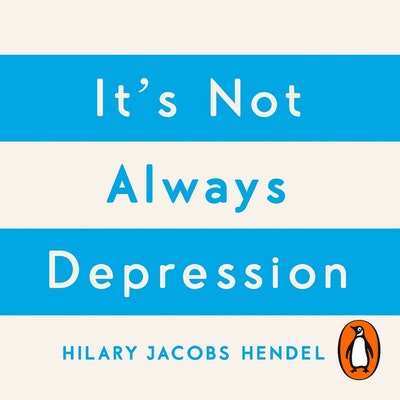Play sample
- Published: 8 February 2018
- ISBN: 9780241984628
- Imprint: Penguin Audio
- Format: Audio Download
It's Not Always Depression
A New Theory of Listening to Your Body, Discovering Core Emotions and Reconnecting with Your Authentic Self
Formats & editions
Buy from…
- Published: 8 February 2018
- ISBN: 9780241984628
- Imprint: Penguin Audio
- Format: Audio Download
The bottom line is this: if you're a human, I recommend that you read this book.
Diana Fosha, the founder of AEDP (Accelerated Experiential Dynamic Psychotherapy) and the author of the book's foreword.
I loved it ... I have drawn my own picture of the change triangle.
Cathy Rentzenbrink, author of The Last Act of Love and A Manual for Heartache
What is unique in this book is Hendel's mission to take psychotherapeutic tools and present and rework them in a way that can be used by individuals . . . like Penn and Teller showing us how a magic trick is really done . . . she is able to translate the method in ways that individuals can use for themselves . . . the genius of this book is converting formal psychotherapeutic strategies into a self-help toolbox
Alan Eppel, Professor of Psychiatry and Psychotherapy Supervisor in the Department of Psychiatry & Behavioural Neurosciences, McMaster University, Hamilton, Ontario



